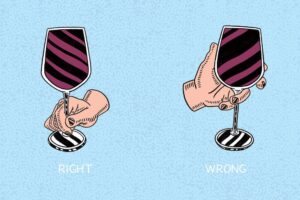Are you looking for a new pair of glasses but don’t want to spend a lot of money? Then you might be wondering if low cost glasses are still trading.
Unfortunately, the answer is no. Low cost glasses went out of business several years ago. However, there are a number of other affordable options available if you’re looking for a new pair of glasses.
The Benefits of Low-Cost Glasses
Although there are a variety of benefits to purchasing low-cost glasses, the most obvious one is the cost savings. Low-cost glasses are typically made with lower quality materials and construction, but they can still provide basic vision correction. Another benefit of choosing low-cost glasses is that they are often more comfortable to wear for extended periods of time since they weigh less than high-end glasses. Low-cost glasses are also a good choice for people who are hard on their eyewear since they are less likely to break than more expensive glasses.
How Low-Cost Glasses Can Save You Money
While the idea of spending less money on something may seem counterintuitive, it can actually save you a lot of money in the long run. Low-cost glasses may not have all the bells and whistles of more expensive options, but they can still provide you with great vision at a fraction of the cost.
Here are a few ways that low-cost glasses can save you money:
- You won’t have to replace them as often.
- You can buy multiple pairs to have on hand for different occasions.
- You don’t have to worry about them getting lost or broken as much.
- You can experiment with different styles without breaking the bank.
If you’re looking for a way to save money on your eyewear, consider low-cost glasses as an option. You may be surprised at how much they can help you save in the long run.
The Different Types of Low-Cost Glasses
There are a few different types of low-cost glasses, each with their own set of benefits and drawbacks.
The first type is called “off-the-shelf” or “ready-made” glasses. These are the type of glasses that you would find at a drugstore or big box store. They’re usually very cheap, but they also tend to be lower quality and not as stylish.
The second type is called “custom” or “bespoke” glasses. These are made to order according to your specific measurements. They’re usually more expensive than off-the-shelf glasses, but they’re also higher quality and more stylish.
The third type is called “designer” glasses. These are high-end glasses that are made by well-known designers. They’re usually very expensive, but they’re also the highest quality and most stylish.
Which type of low-cost glass is right for you depends on your budget and your needs. If you need glasses that are cheap and cheerful, then off-the-shelf glasses might be a good option. If you need something that’s higher quality and more stylish, then custom or designer glasses might be a better option.
How to Choose the Right Low-Cost Glasses for You
With so many choices available, it can be tough to know how to choose the right low-cost glasses for you. Here are a few things to keep in mind that will help you make the best decision:
- consider your lifestyle and needs: if you lead an active lifestyle, you’ll want to make sure your glasses can stand up to wear and tear; if you have a job that requires precision, you’ll want to make sure your glasses don’t interfere with your vision
- think about your budget: while low-cost glasses can save you money, they may not last as long as more expensive options; decide how much you’re willing to spend upfront and over time
- compare features: once you’ve narrowed down your options, take the time to compare features like frame material, lens type, and warranty coverage; this will help you find the best value for your money
By keeping these factors in mind, you can be sure to find the right low-cost glasses for you.
The Pros and Cons of Low-Cost Glasses
It’s no secret that glasses can be expensive. A decent pair of frames can easily set you back hundreds of dollars, and if you need prescription lenses, the price tag can jump even higher. So it’s no wonder that many people are tempted to buy low-cost glasses instead. But is this really a good idea? Let’s take a look at the pros and cons of low-cost glasses to help you make an informed decision.
Pros:
- Low cost glasses are, well, low cost! This is obviously the biggest advantage of opting for a cheaper pair of frames. If you’re on a tight budget, or if you simply don’t want to spend a lot of money on your glasses, this can be a great option.
- Low cost glasses are widely available. You can find them at most drugstores and supermarkets, as well as online. This makes them very convenient to purchase.
- Low cost glasses are often adjustable. If you find that the frames don’t fit quite right, or if the lenses need to be tweaked, it’s usually fairly easy to make adjustments yourself. This isn’t always possible with more expensive frames.
Cons:
- Low cost glasses may not be very durable. If you wear your glasses all the time, or if you have a habit of putting them down roughly, they may not last very long before needing to be replaced. More expensive frames tend to be more durable and better able to withstand constant wear and tear.
- Low cost glasses may not offer the best vision correction. If you have a complex prescription, or if you need high-index lenses, you may find that low cost glasses don’t give you the same level of clarity and correction as more expensive options.
- Low cost glasses may not be very stylish. If you care about fashion and want to make sure your glasses look good, you may be disappointed with the selection of low cost frames available
How to Care for Your Low-Cost Glasses
It is important to take care of your low-cost glasses so that they will last longer and perform better. Here are some tips on how to care for your glasses: -Keep them clean: Clean your glasses with a gentle soap and water. Avoid using harsh chemicals or abrasives, as these can damage the lenses. -Handle them with care: Be careful when handling your glasses. Avoid dropping them, as this can damage the frame or lenses. -Store them properly: When not in use, store your glasses in a case to protect them from scratches.
Low-Cost Glasses vs. Expensive Glasses
There are many factors to consider when choosing glasses, including cost. But is it worth it to spend more money on expensive glasses?
There are certain benefits to cheaper glasses. They are often more comfortable to wear, since they are lighter and have less metal. They are also more affordable, so you can buy multiple pairs or replace them more easily if they break.
However, cheaper glasses may not offer the same level of quality as more expensive options. They may not be as durable, and the lenses may not be as clear. In addition, cheaper glasses may not provide the same level of protection from the sun and other elements.
Ultimately, the decision of whether to choose low-cost or expensive glasses depends on your needs and preferences. If you need glasses for everyday use, you may want to opt for a cheaper pair. But if you need glasses for a specific purpose, such as sports or driving, you may want to choose a more expensive pair that offers better quality and protection.
The Bottom Line on Low-Cost Glasses
There are a lot of myths and misperceptions about low-cost glasses. Some people think that they are made with lower quality materials, or that they won’t last as long as more expensive options. But the truth is, you can find well-made, durable low-cost glasses if you know where to look.
There are a few things to keep in mind when shopping for low-cost glasses. First, look for glasses that are made with high quality materials. Second, check for a warranty or guarantee from the manufacturer. And finally, be sure to read the reviews before you buy.
With a little bit of research, you can find low-cost glasses that will meet your needs and last for years to come.












